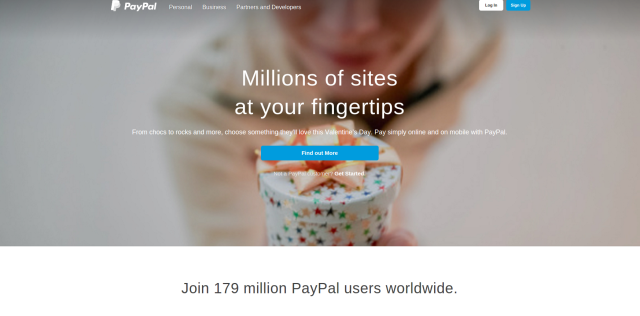
PayPal has stopped accepting payments for Canadian outfit UnoTelly—a provider of VPN and SmartDNS services—because these might be used to facilitate copyright infringement.
UnoTelly said in an update on its website that Paypal had "severed payment processing agreement unilaterally and without prior warning." It added: "Paypal indicated that UnoTelly is not allowed to provide services that enable open and unrestricted Internet access."
Ars sought comment from PayPal on this story, however, it had not immediately got back to us at time of publication. We'll update this story, if the online payments giant does get in touch.
UnoTelly told its customers that it had no control over PayPal's decision, and apologised for the inconvenience.
PayPal wrote in an email, seen by TorrentFreak: "Under the PayPal Acceptable Use Policy, PayPal may not be used to send or receive payments for items that infringe or violate any copyright, trademark, right of publicity or privacy, or any other proprietary right under the laws of any jurisdiction."
UnoTelly told the blog: "We are disappointed at PayPal’s unilateral action and the way it acted without prior warning. We provide both DNS resolution and secure VPN services. Our services are network relays that connect people around the world."
However, its website also points out that its SmartDNS service "removes geo-blocks imposed by streaming sites and allows you to watch geo-restricted channels regardless of where you live,"—a method that copyright holders have been fighting against.
The larger problem is that all VPN services can be used to circumvent geo-blocking, which would arguably fall foul of PayPal's ban on anything that "avoids, bypasses, removes, deactivates or impairs a technological measure without the authority of the copyright owner." In the past, PayPal has cracked down on BitTorrent sites, Usenet providers, and file-hosting services. So VPNs might be next.
PayPal is widely used around the world—it currently claims 179 million users—so the withdrawal of its services can have serious negative consequences for a company, or a non-profit organisation. Sometimes that has been done intentionally, as in the case of WikiLeaks, but frequently as a result of an error, for example, when the funds of crowdfunded projects like MailPile, and ProtonMail were blocked.
The rise of Bitcoin and other digital currencies suggest that alternative mass-market payment systems may evolve at some point. However, the fact that UnoTelly—in the immediate future, at least—will not be offering any replacement for PayPal, other than credit cards, highlights the extent to which the world of online payments can be something of a monoculture, which can be a tough market for all sorts of different providers.
reader comments
109